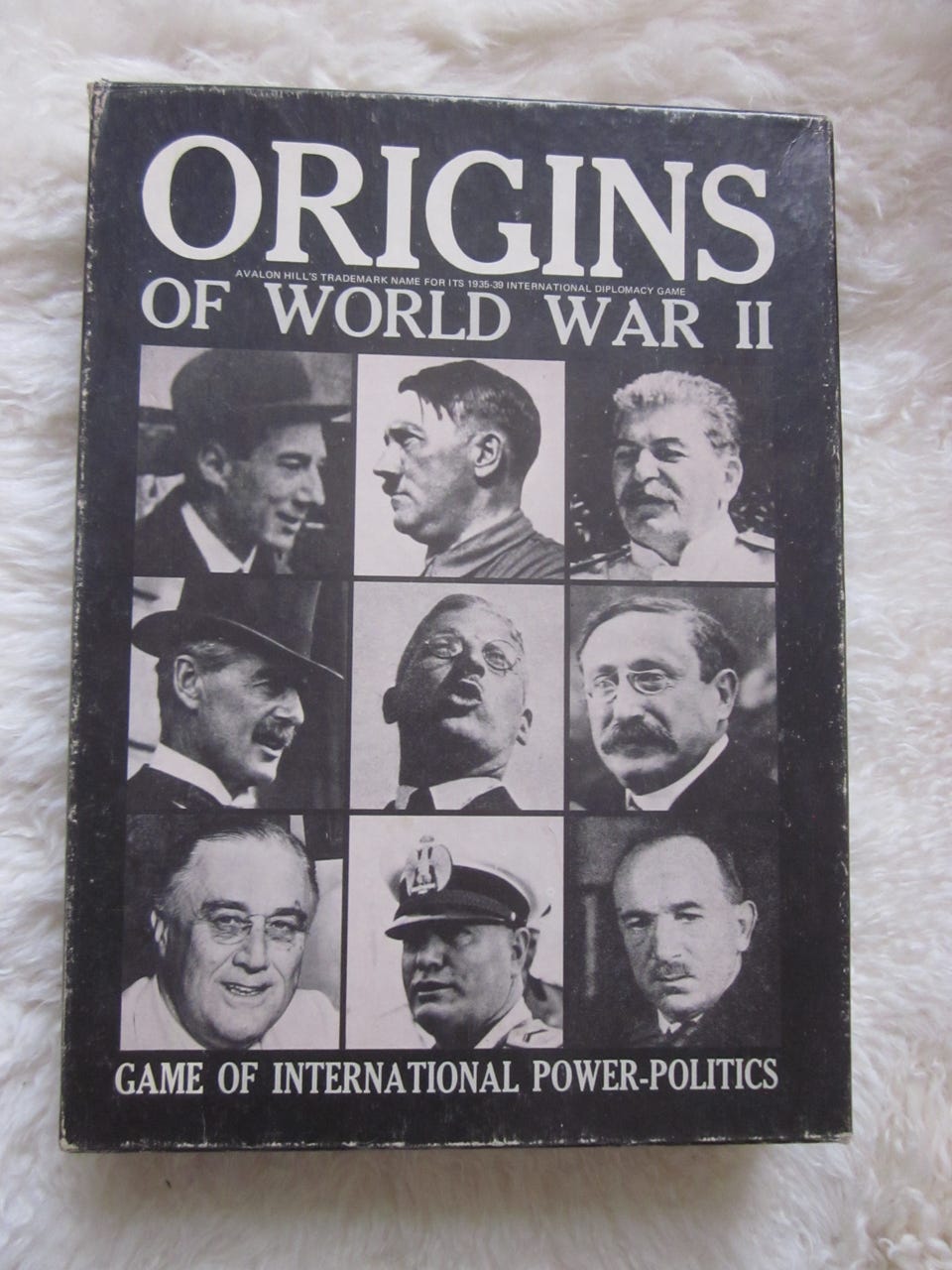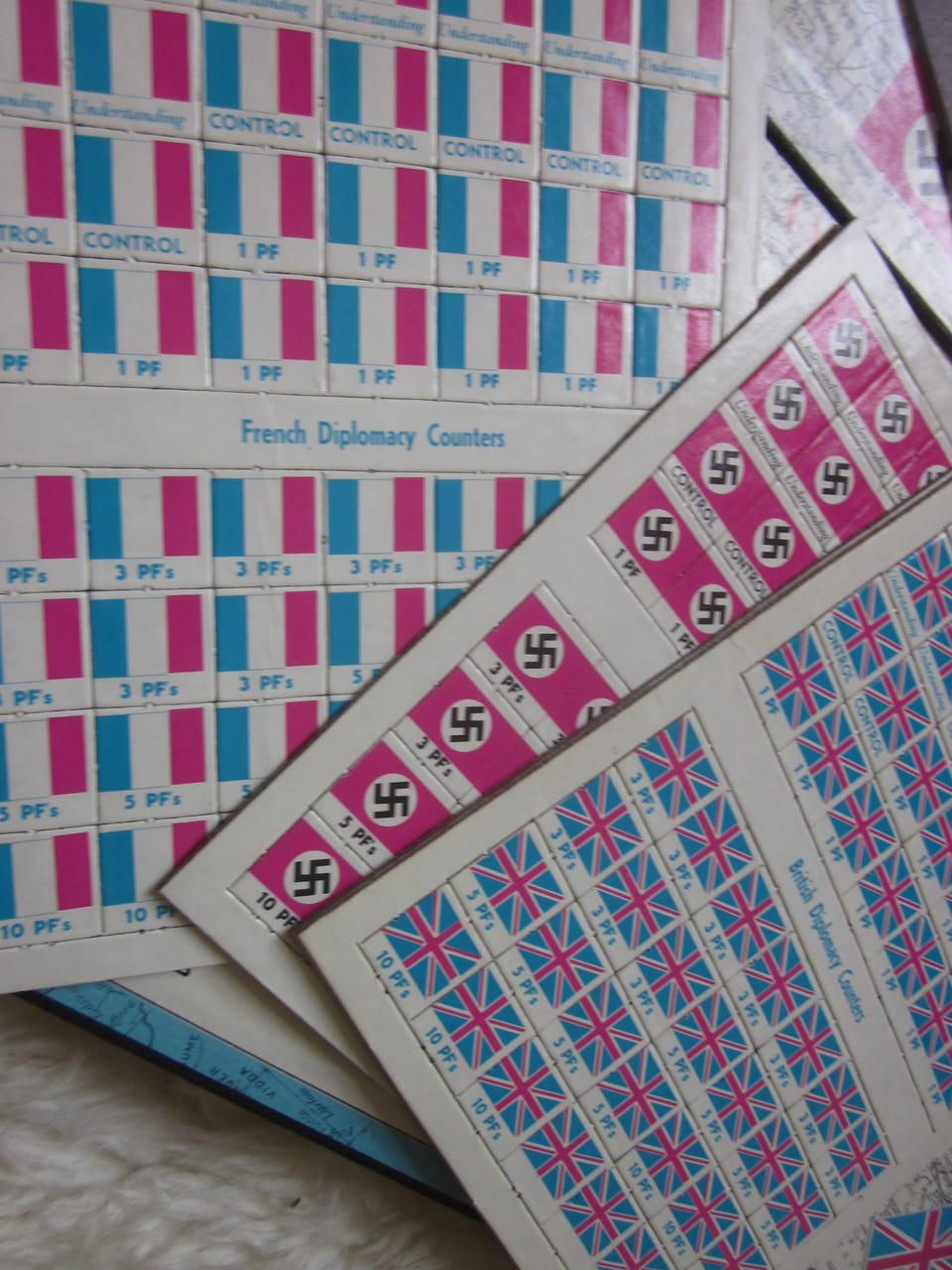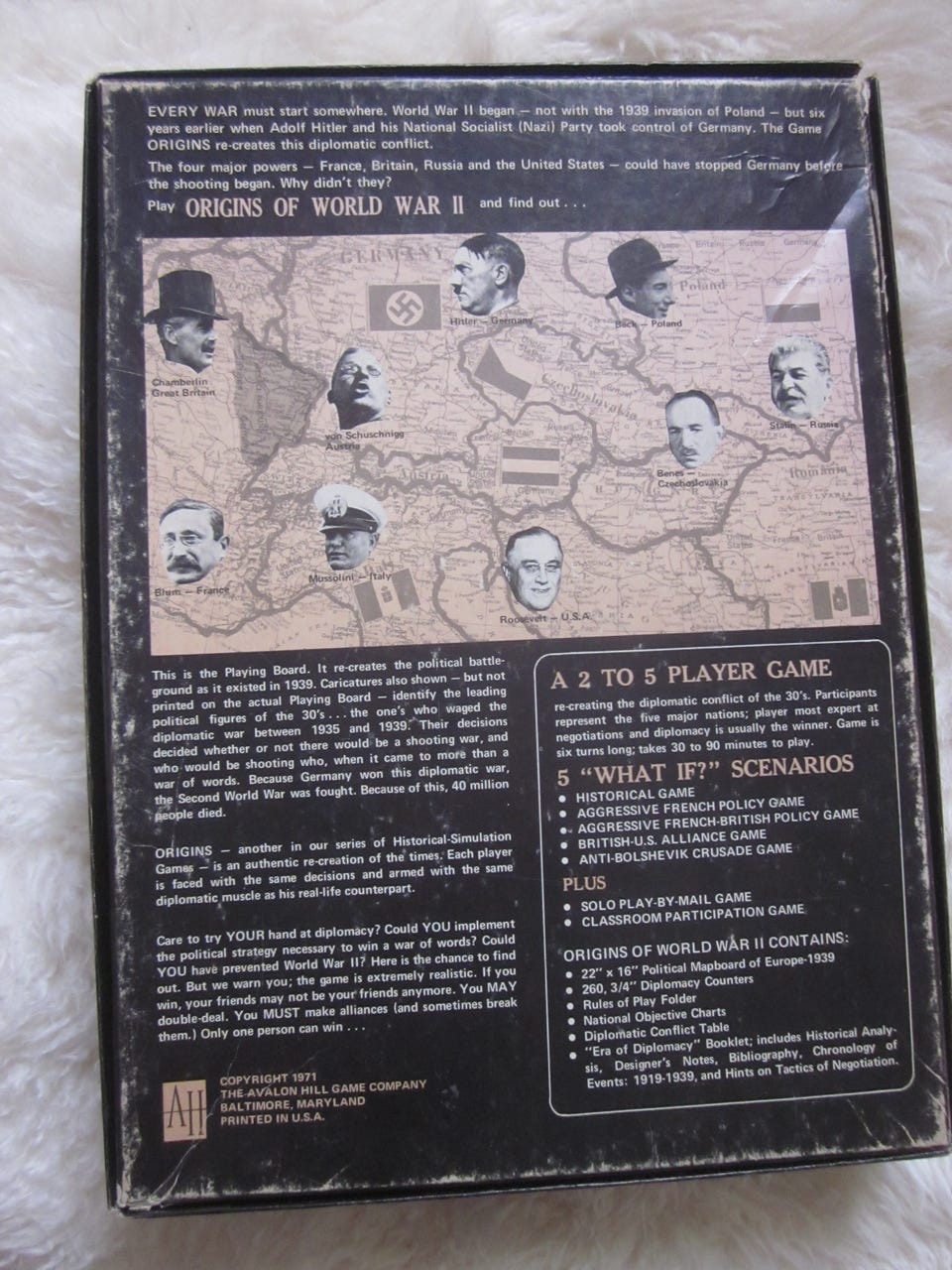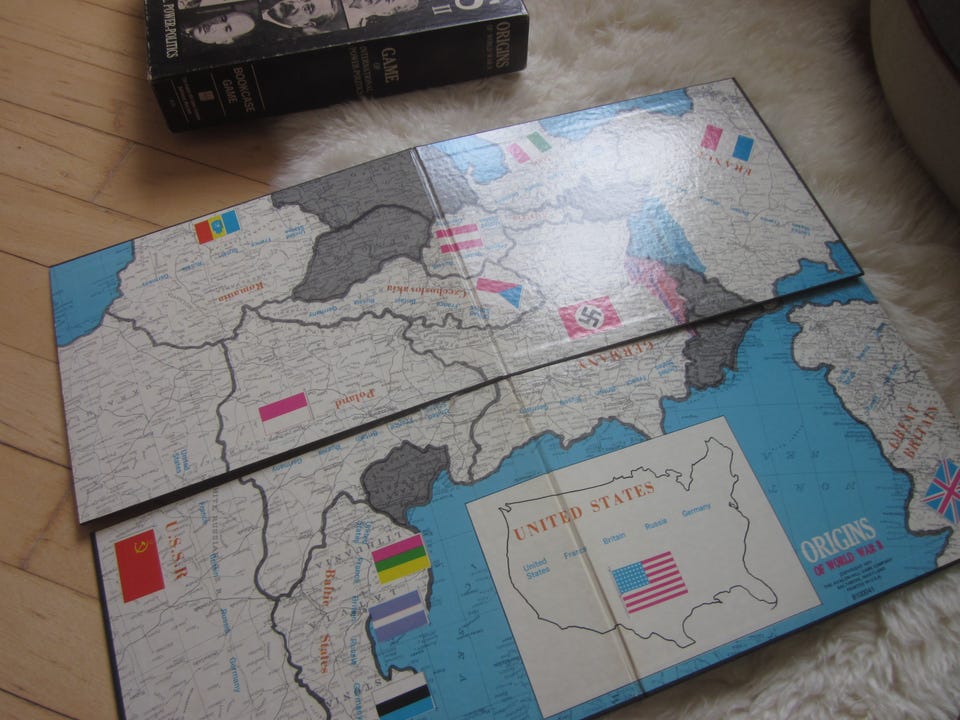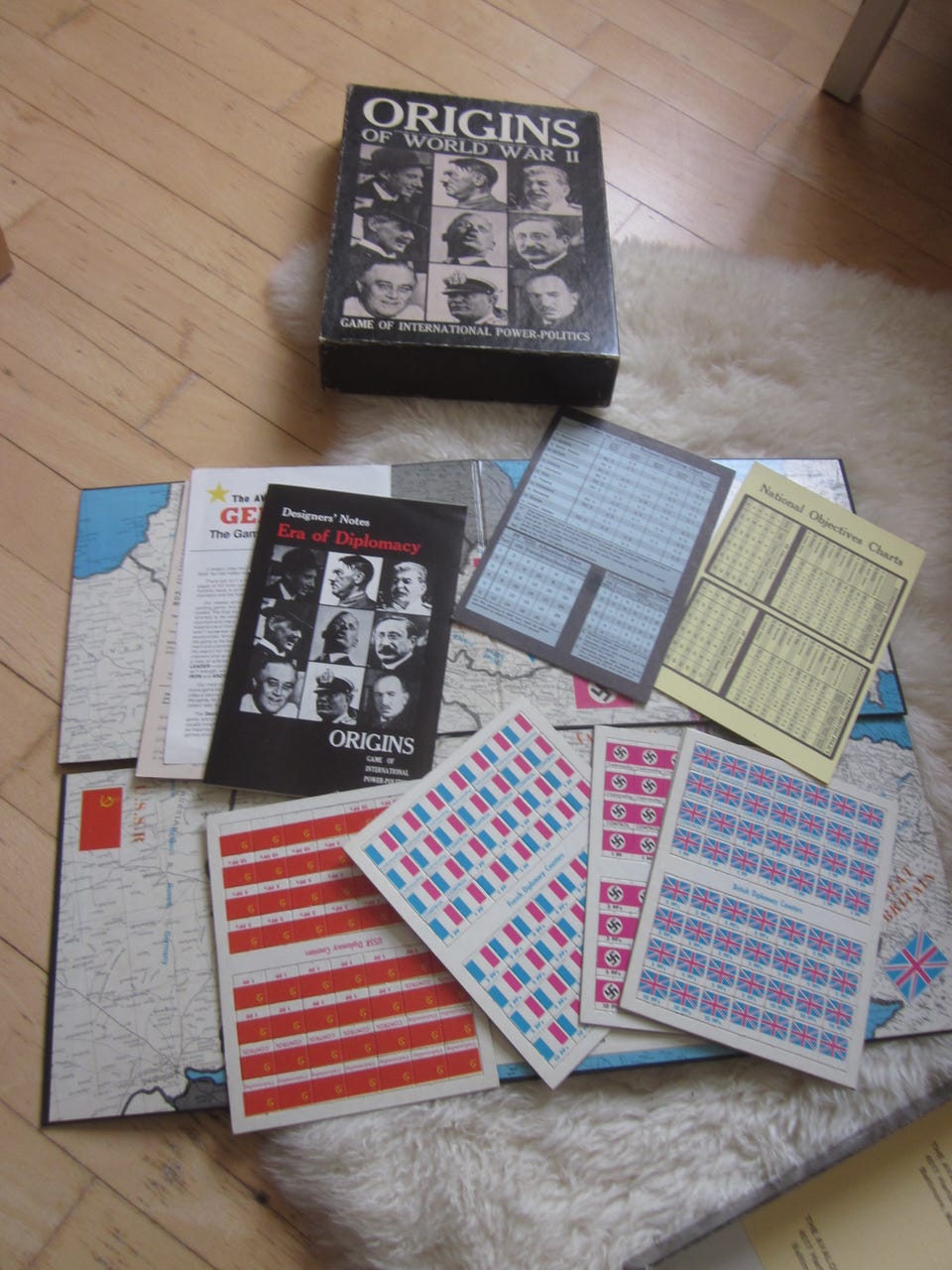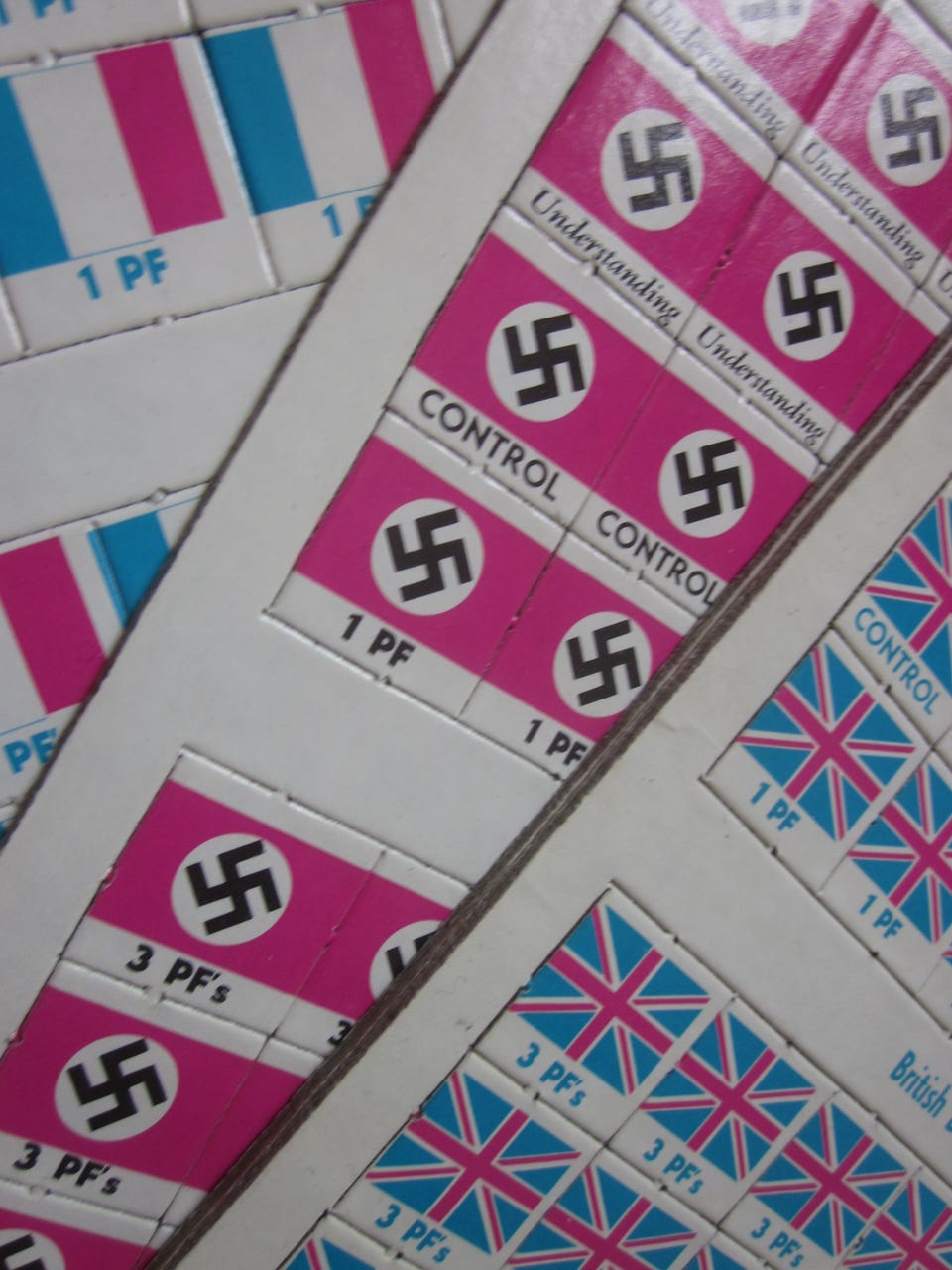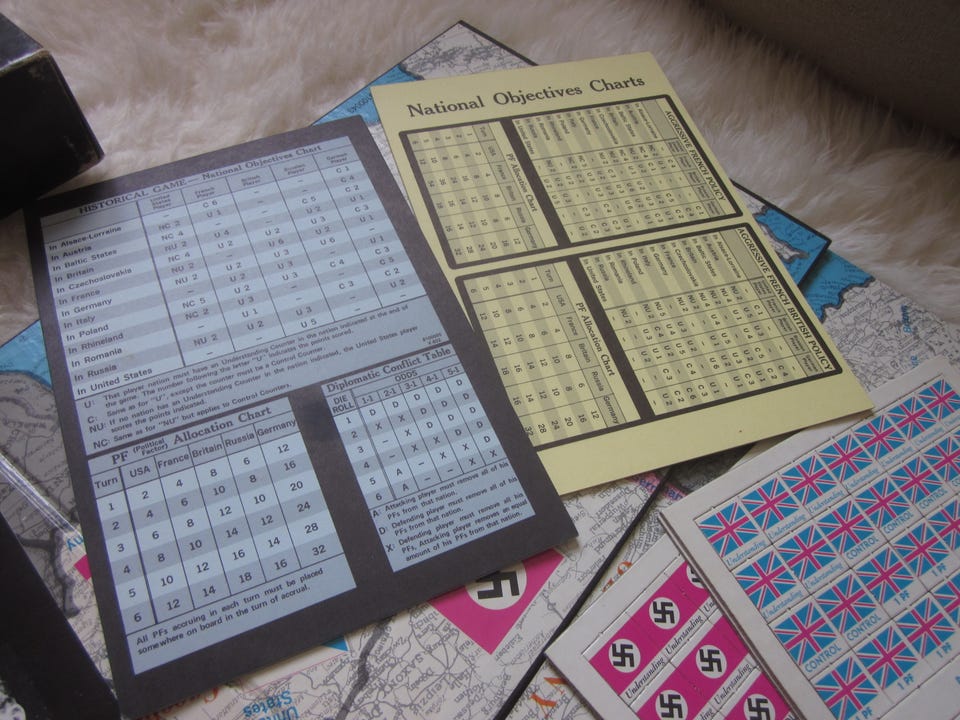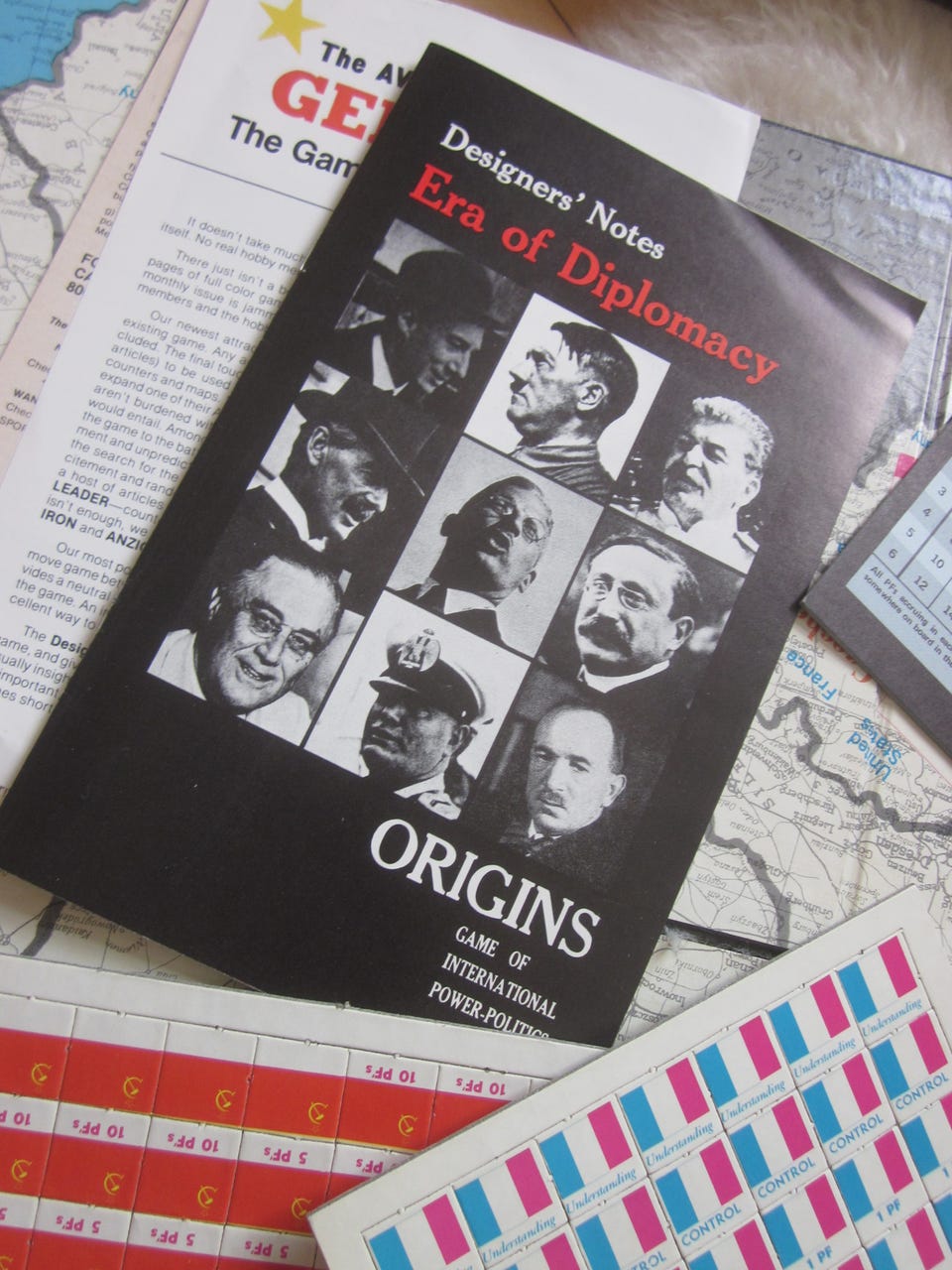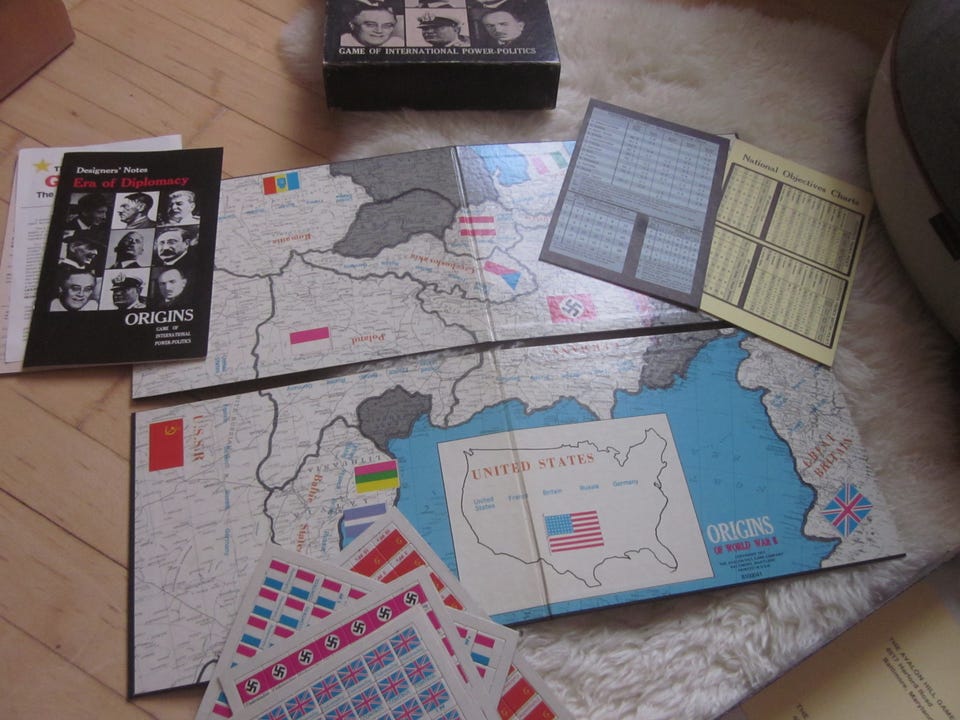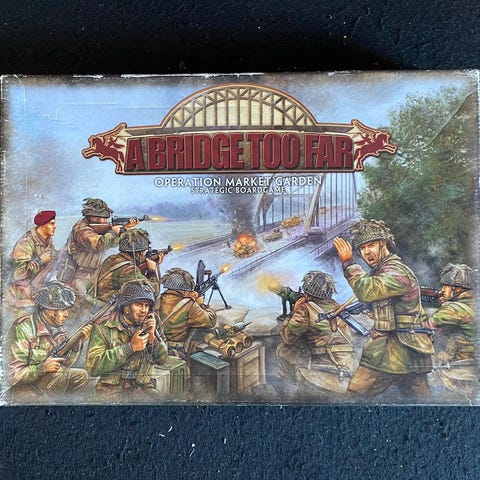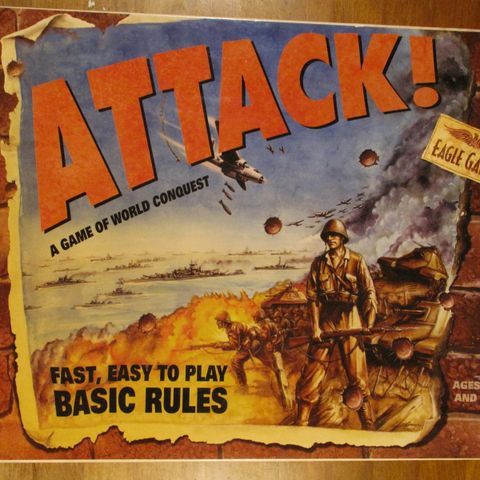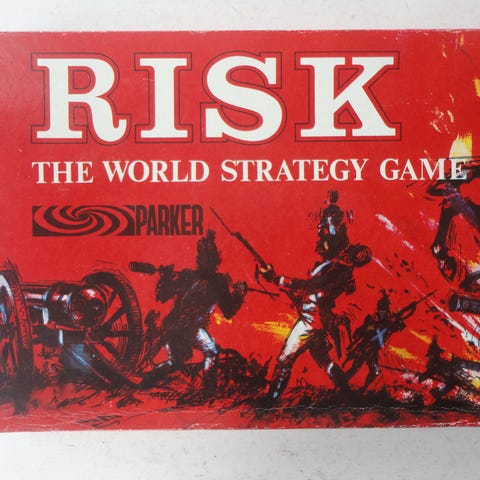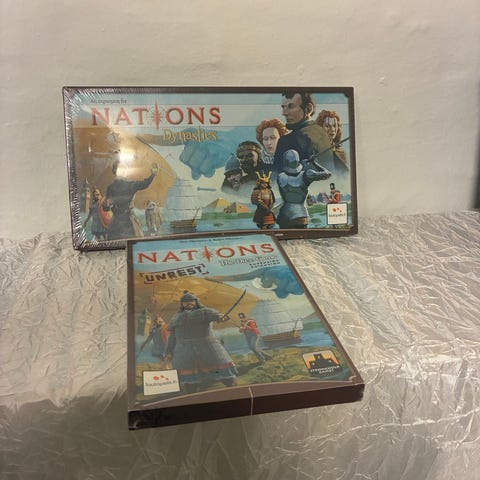
Billedgalleri
BRÆTSPIL: ORIGINS OF WORLD WAR II - Game of international power politics
Til salg
500 kr.
Varebeskrivelse
Stand: Brugt - men i god stand
Spillet er komplet og indhold er ubrugt. Spillepladen er ikke knækket. Den er 2 delt. Brikker er ikke trykket ud af pap, de sidder stadig i pap. Se alle fotos af dette super velholdte spil. Fragt 48kr GLS
Spillet er på engelsk.
Description
Origins of World War II is a game for 2–5 players, in which each player takes on the role of one of five world powers in the mid-1930s (USA, France, UK, Russia, Germany). Each attempts to promote the diplomatic objectives of their country while preventing the other players from achieving theirs.
Gameplay
The game starts in 1933, and each turn represents one year. The game ends in 1939, at the end of the sixth turn.[1]
Objectives
Each player has a particular set of objectives, each of which provides a set number of victory points. These will differ from player to player — one player may earn 2 victory points for establishing an understanding with Italy, another player may earn no victory points or more victory points for the same thing.[1]
Political Factors and Understandings
Each player goes in a particular order, the United States first, Germany last. Each receives a number of Political Factors each turn, which can be placed on any country where the player can score victory points, or the player's home country. Once a player has placed five Political Factors in a country, the player can place an Understanding in that country. Several players can simultaneously have Understandings with the same country.[1]
Control
Once a player has placed more than five Political Factors in a country, and no other player has any Political Factors in that country, the player may place a Control on that country if it would earn that player victory points. Once a Control is in place, it cannot be removed.[1]
In order to remove another player's Political Factors from a country, a player can attack an opponent's Political Factors with their Political Factors. The ratio of attackers to defenders is calculated, a die is thrown and a result gained from the Diplomatic Result Table. There are four possible results: the attacking player removes all their Political Factors from that country; the defending player removes all their Political Factors; the Defending player removes all their Political Factors and the Attacker removes the same number; and No Effect.[1]
For example, France has 3 Political Factors in the Rhineland, and Germany has 6. Germany attacks France's Political Factors at a ratio of 2:1. The German player rolls a 2, meaning France must remove all 3 Political Factors, but Germany must also remove 3, leaving only 3 in the Rhineland, not enough to establish Control. If Germany had rolled a 1, only France would have had to remove Political Factors, leaving Germany with 6 and able to place a Control on the Rhineland.[1]
Diplomacy
Germany is the most powerful player, receiving the greatest number of Political Factors each turn, and having the advantage of going last. To counteract an easy German victory, the other players must find some way of cooperating in order to limit Germany's power while still advancing their own agendas.[1]
Victory conditions
At the end of the sixth turn (1939), victory points are awarded according to each country's national objectives. For example, if the French player has an Understanding in Austria, they gain 1 victory point. If Germany has Control of the Rhineland, they gain 5 victory points. The player with the most points wins. If Germany or the Soviet Union win with 15 points or more, then World War II has started. If any other player wins, war has been averted.[1]
Scenarios
In addition to the "historical" scenario, four other "what if" scenarios are included: Aggressive French Policy Game, Aggressive French-British Policy Game, British-U.S. Alliance Game, and Anti-Bolshevik Crusade Game.[1]
Brugerprofil

Du skal være logget ind for at se brugerprofiler og sende beskeder.
Log indAnnoncens metadata
Sidst redigeret: 23.5.2025 kl. 15:54 ・ Annonce-ID: 9362701
